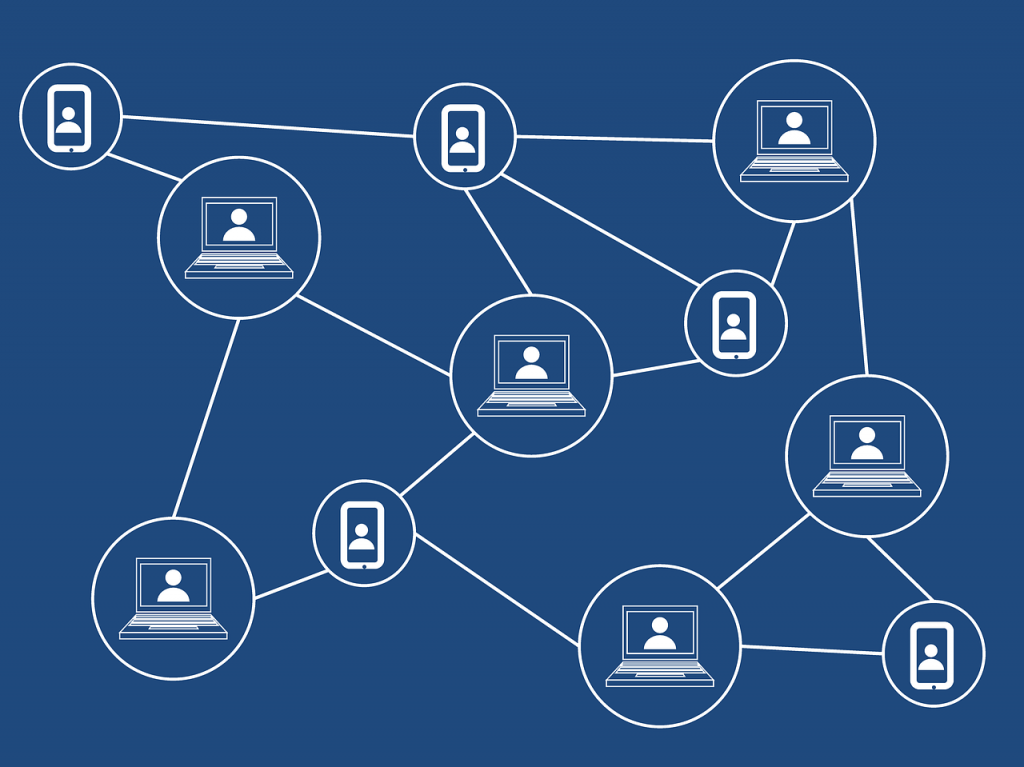 It might be a surprise, but blockchain, the breakthrough technology that many of us still didn’t quite manage to understand, is celebrating its anniversary as it was invented a decade ago. It surely has been on everyone’s lips in the last few years, but we still don’t really feel the impact it can have on the world. It will surely take more time for blockchain to take over all the areas of our lives. A wide scale adoption of blockchain in many industries is expected in the coming years, and it could mean a huge transformation of the way that our society works today. But what about marketing? Can blockchain technology really have an impact on the digital marketing landscape?
It might be a surprise, but blockchain, the breakthrough technology that many of us still didn’t quite manage to understand, is celebrating its anniversary as it was invented a decade ago. It surely has been on everyone’s lips in the last few years, but we still don’t really feel the impact it can have on the world. It will surely take more time for blockchain to take over all the areas of our lives. A wide scale adoption of blockchain in many industries is expected in the coming years, and it could mean a huge transformation of the way that our society works today. But what about marketing? Can blockchain technology really have an impact on the digital marketing landscape?
In this blog post we are going to discuss the ways blockchain can revolutionize digital marketing and advertising in the areas of:
- the protection of customers’ personal data,
- the prevention of data breaches,
- decentralization and access to customer data,
- lack of trust and transparency in influencer marketing,
- the prevention of ad frauds,
- better ad personalization based on users’ preferences,
- the elimination of intermediaries in advertising.
Firstly, what blockchain really is?
We got used to the term blockchain in the past few years, and it is normally mentioned along with the cryptocurrencies and Bitcoin. But blockchain is not an equivalent of Bitcoin: it’s the backbone of the cryptocurrencies, but this technology can be applied not only for money and fintech, but has many more uses. The core of blockchain can be described in a few words: decentralization, encryption, transparency, immutability, and security.
Take a look at this great infographic from PwC that explains well how blockchain works or the Harvard Business Review’s definition that emphasizes its possibilities for many industries:
(…) blockchain is an open, distributed ledger that can record transactions between two parties efficiently and in a verifiable and permanent way. (…) With blockchain, we can imagine a world in which contracts are embedded in digital code and stored in transparent, shared databases, where they are protected from deletion, tampering, and revision. In this world every agreement, every process, every task, and every payment would have a digital record and signature that could be identified, validated, stored, and shared. Intermediaries like lawyers, brokers, and bankers might no longer be necessary. Individuals, organizations, machines, and algorithms would freely transact and interact with one another with little friction. This is the immense potential of blockchain.
If you haven’t been living in a cave, you surely are aware that there is a great craze around blockchain and cryptocurrency. Like always with this type of things, there is some overhype and exaggeration. Almost everyone seems to lose their minds about blockchain, even organizations that supposedly have nothing to do with this technology. Let’s mention for example the Long Island Iced Tea Corp that was rebranded to Long Blockchain Corp and switched from the production of beverages to blockchain technology. Of course, their share prices skyrocketed, even if this idea may seem quite bizarre. But behind the hype that might feel a bit irrational, there is truly something that can bring real changes.
Is blockchain the cure for marketing pain points?
Let’s try to define the biggest problem of digital marketing nowadays. Some of the most commented scandals lately were related to privacy breach issues and customer data protection: it’s enough to mention the famous case of Cambridge Analytica and Facebook scandal, the massive data breach that shook the whole world in March this year.
Let’s face the truth: an incredible amount of our personal and behavioral data is stored by companies in their vulnerable and easy to hack servers. Minor customer data leaks happen so often that it doesn’t even surprise anyone.
There are attempts to solve these problems, such as the recent European Union GDPR regulation that affects not only European companies and requires much higher standards of data protection, but many organizations still are not able to comply with it. We still lack reliable solutions to protect personal data from being stolen, sold or harvested without consent. Not even big corporations like Facebook or the governments are able to secure the data they have access to.
Other major issues are the frauds in online advertisement. Almost 50% of ad traffic is being generated by bots (source), which means that companies trying to reach their target audiences by ads lose lots of money due to fraudulent clicks or views. Bots have also caused a breach of trust in influencer marketing as the number of fake influencers, fake likes and followers etc. have risen. The lack of transparency and verification is a serious problem here.
But is there something than blockchain could do to resolve these problems? Many point the parallels between the current situation and the apparition of the internet decades ago. This brought a great transformation of marketing: new strategies, tools and tactics, the whole new world of social media, email marketing, marketing automation etc. Is this something that could happen again thanks to blockchain? We still are not able to imagine all of its possible uses, but the predictions indicate it really can change the whole landscape of digital marketing.
Decentralization of customer data
Blockchain is a way to assure a complete encryption and safety of all data. The information is stored in a decentralized system: it’s distributed among a network of numerous computers. This system is almost impossible to corrupt or hack. It’s a safety level that wasn’t possible ever before. What is more, the customers won’t need to be concerned anymore about their data privacy, and they will have a total control over the information that is shared about them. They will have the opportunity to decide with whom they are willing to share the data: for example, with companies that offer them something attractive in exchange. Basically, there will be no intermediaries selling customer data (with or without their consent, as it happens today); the customers will sell this information directly to the companies they consider worthwhile and trusted.
Restoring trust in advertising
Without doubt, nowadays there are two kings of digital advertising: Facebook and Google. Advertisers that want to display ads to their desired target audiences are now depending on those networks and are being charged double: by the ad display networks and the publishers. But in the blockchain era there will be no need for those middlemen in advertising: advertisers will be able to connect with publishers directly, which will make the process of media buying more swift, transparent and cheaper, as you won’t need to pay any 3rd parties.
Blockchain-based solutions for ads already exist. There is for example Brave, the pro-privacy browser that at the same time is a decentralized ad service based on blockchain. It measures user’s attention in order to charge advertisers accurately, therefore, it’s more transparent for advertisers what they pay for. Moreover, the users can choose which type of ads they want to see and are rewarded for watching them in tokens. This way there is no need to pay the middlemen such as Google or Facebook for their intermediation, and all the parties: publishers, advertisers, and users benefit from the system.
The ad frauds also will be greatly diminished, because blockchain technology will allow the advertisers to verify ads delivery. They finally will have the opportunity to detect issues such as fake clicks or impressions and check if their money is well spent and brings genuine effects.
The same applies to the verification of influencer marketing campaigns. With blockchain, marketers will be able to verify if the influencer’s followers are real people or bots. This will solve the growing problems in the influencer marketing industry and will benefit both marketers and real influencers that today are affected by the unfair practices used by their unethical competitors.
Will these solutions really work and change marketing for good as the internet has done before? Some of the solutions described are becoming a reality step by step, but others are more a vision than a fact. The mass adoption of blockchain in digital marketing is still a few years down the road and as it happens, we will find out if it really can bring a transformation of everything we know.




 Follow
Follow
















